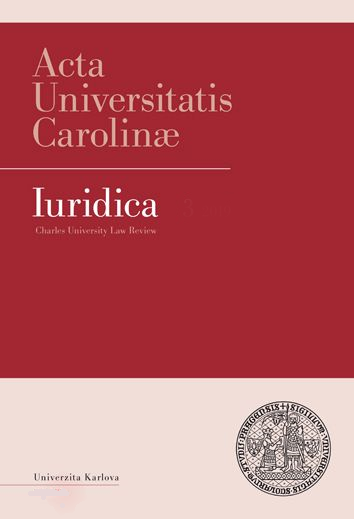Zrod a utváření principu proporcionality v poválečném německém ústavním právu
The Birth and Formation of the Proportionality Principle in the Post-War German Constitutional Law
Author(s): Pavel OndřejekSubject(s): Law, Constitution, Jurisprudence
Published by: Univerzita Karlova v Praze, Nakladatelství Karolinum
Keywords: human rights; principle of proportionality; practical concordance; constitutional argumentation; post-war German constitutional law
Summary/Abstract: The principle of proportionality which emerged in post-war German jurisprudence and case-law of German courts followed some older theories and ideas, such as the necessity principle known from the Prussian administrative law since the 18th century or German school of legal sociology. The main impetus for the development of contemporary form of the proportionality principle is described by the author of this article as post-war German constitutional doctrine with its conception of a constitution as an “objective order of values”. This idea of constitution is connected with fundamental rights protection and material, not only formal, conception of state governed by law. Due to the broad protection of fundamental rights there was necessary to elaborate a method of finding constitutional limits of these rights in a democratic society. The main reasons for the formation of the doctrine of proportionality were theories of direct binding force of constitution and of its unity. The main aim of this article is to illustrate that the principle of proportionality was not formed in the German constitutional law in one moment. Namely in the 1960th there existed various alternative conceptions to the proportionality principle (the article mentions prohibition of over-inclusive regulation – Übermaßverbot – by Peter Lerche and the principle of practical concordance – praktische Konkordanz – by Konrad Hesse). The principle of proportionality became due to the gradual formation in case-law of German courts – in particular the Federal Constitutional Court – one of the most important method of contemporary constitutional argumentation. It is however relatively modern principle, in comparison with conceptions such as democracy, sovereignty or rule of law. Despite this fact it is in my opinion important to deal with the circumstances of its birth and reasons for its wide application in the German constitutional law.
Journal: Acta Universitatis Carolinae Iuridica
- Issue Year: 61/2015
- Issue No: 3
- Page Range: 155-170
- Page Count: 16

